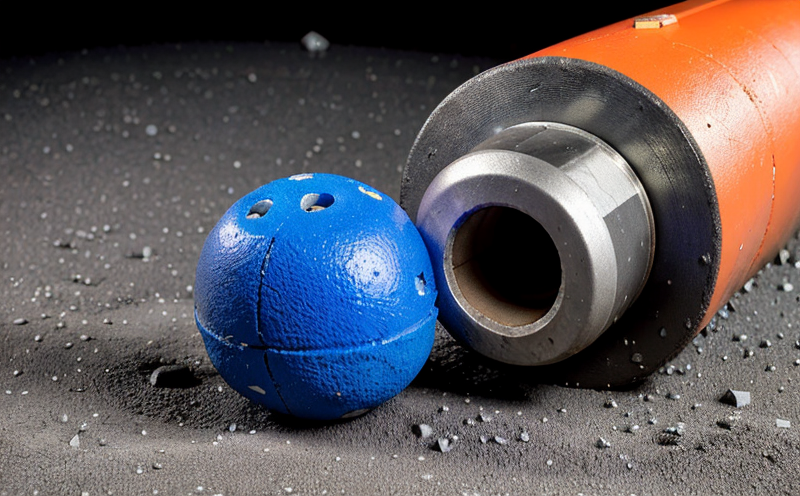Testing the ability of materials to resist crushing forces or compression without failing
The Unyielding Force Testing Materials to Resist Crushing Forces
In the world of materials science and engineering, understanding a materials ability to resist crushing forces is crucial for ensuring the safety, efficiency, and longevity of products. This critical property, known as compressive strength, determines how well a material can withstand immense pressures without failing or deforming excessively. At Eurolab, our team of expert scientists provides a comprehensive laboratory service to test materials compressive strength, helping businesses across various industries make informed decisions about product development and manufacturing.
Why is Testing Compressive Strength Important?
Compressive strength testing is essential for several reasons
Product Reliability Knowing the compressive strength of materials used in product design ensures that they can withstand expected loads, reducing the risk of failure and ensuring customer satisfaction.
Safety Products with high compressive strength are less likely to collapse or crush under heavy loads, minimizing the risk of accidents and injuries.
Cost Savings By selecting materials with suitable compressive strength, businesses can avoid costly redesigns, material substitutions, and potential liabilities associated with product failures.
Key Benefits of Compressive Strength Testing
Eurolabs compressive strength testing service offers numerous benefits to businesses
Material Selection Identify the most suitable materials for specific applications based on their compressive strength.
Design Optimization Refine product designs to maximize compressive strength, reducing the risk of failure and ensuring efficient use of resources.
Quality Control Regularly test materials to ensure they meet specifications, maintaining product quality and customer satisfaction.
Research and Development Support innovation by testing new material formulations and manufacturing processes.
Compressive Strength Testing A Comprehensive Overview
Our team at Eurolab employs state-of-the-art equipment and techniques to conduct compressive strength tests on a wide range of materials, including
Concrete and Cementitious Materials Test compressive strength in accordance with industry standards, such as ASTM C
Soil and Rock Samples Determine uniaxial compressive strength using specialized equipment and procedures.
Metals and Alloys Conduct compression tests to evaluate yield strength, ultimate strength, and elongation at break.
QA Your Compressive Strength Testing Queries Answered
Q What types of materials can be tested for compressive strength?
A Eurolabs laboratory service caters to a broad spectrum of materials, including concrete, cementitious mixtures, soils, rocks, metals, and alloys.
Q How do you determine the compressive strength of materials?
A Our team employs industry-standard testing procedures, such as those outlined in ASTM C39 for concrete, and specialized equipment tailored to each material type.
Q Can Eurolab provide customized testing protocols for specific applications?
A Yes, our experts work closely with clients to develop tailored testing plans that meet unique requirements and specifications.
Conclusion
In conclusion, compressive strength testing is an indispensable tool for businesses seeking to ensure product reliability, safety, and efficiency. By partnering with Eurolab, companies can leverage our expertise and state-of-the-art facilities to optimize material selection, design, and manufacturing processes. Dont compromise on the performance and longevity of your products trust Eurolabs comprehensive compressive strength testing service to provide the accurate results you need to succeed in a competitive market.
-
Evaluating the stress at which materials like concrete, steel, and composites begin to deform or fail
-
Simulating extreme weight and pressure scenarios to assess material resilience under compressive stress
-
Testing the maximum load that materials can support before reaching their compressive failure point
-
Ensuring that materials used in foundations and structural elements maintain their integrity under load
-
Verifying the compressive strength of concrete and other masonry materials used in construction
-
Ensuring that composite materials can handle compressive forces without significant damage
-
Testing the compressive properties of materials used in high-load environments, such as bridges and skyscrapers
-
Evaluating how materials perform under vertical load conditions, such as the weight of buildings and structures
-
Simulating pressure conditions to ensure materials will not collapse or buckle under heavy loads
-
Verifying that the strength of materials used in construction meets building code requirements for structural safety
-
Testing the ability of materials to maintain their shape and strength under constant pressure over time
-
Simulating the effect of thermal expansion and contraction on materials' compressive strength
-
Testing materials for their ability to withstand pressure during the freeze-thaw cycles in construction
-
Ensuring that materials like steel and aluminum maintain their integrity under compressive forces during manufacturing
-
Testing materials for their compressive strength in both dry and wet conditions to ensure performance consistency
-
Verifying that materials used for columns, beams, and load-bearing elements provide sufficient strength
-
Ensuring the longevity of materials under constant or cyclic compressive loads over time
-
Testing the resistance of materials to crushing forces when subjected to extreme weight distribution
-
Evaluating the effect of high-temperature exposure on the compressive strength of building materials
-
Testing the compressive strength of materials used in flooring and wall systems to ensure safety
-
Ensuring that compressive stress does not cause cracking, warping, or other structural issues
-
Testing how well materials perform in confined spaces, such as tunnels or enclosed structures, under compression




